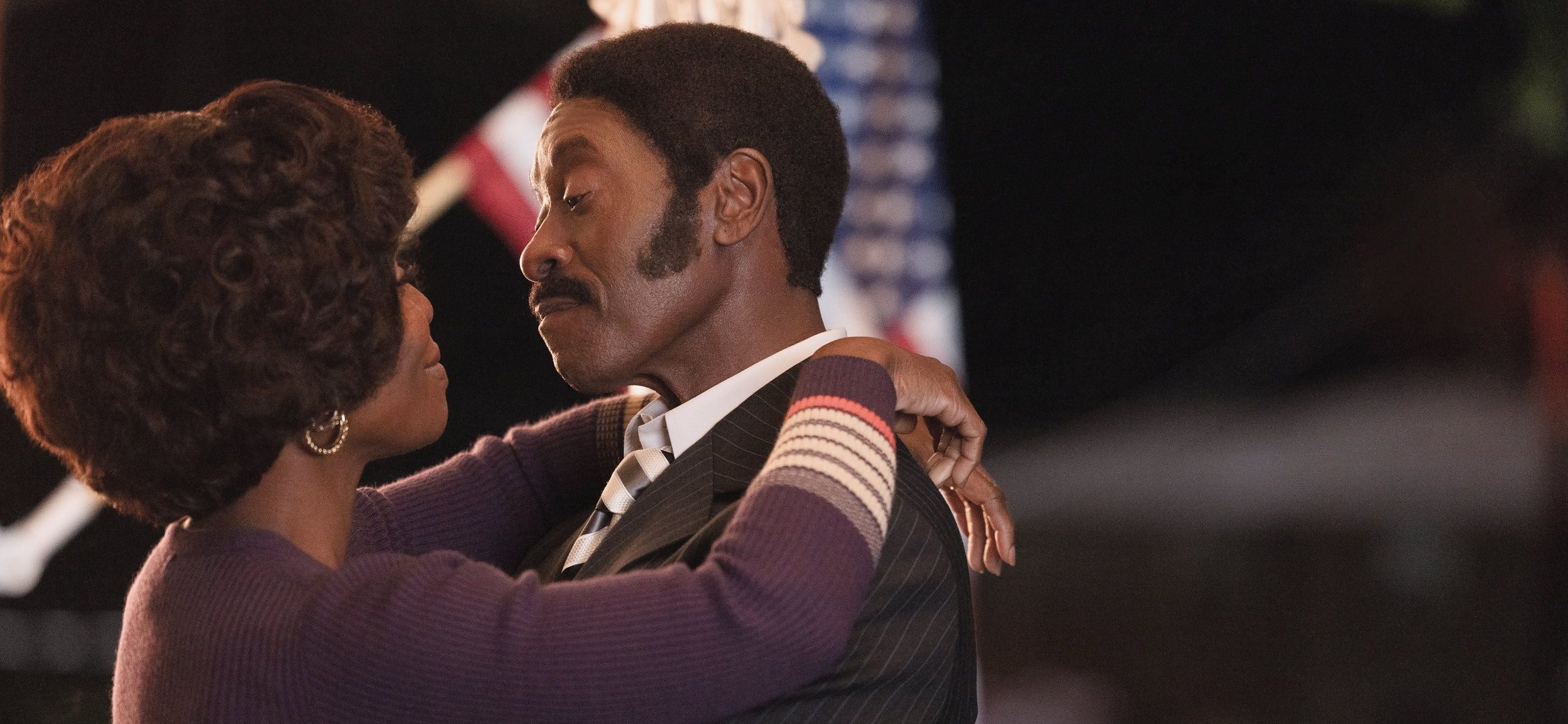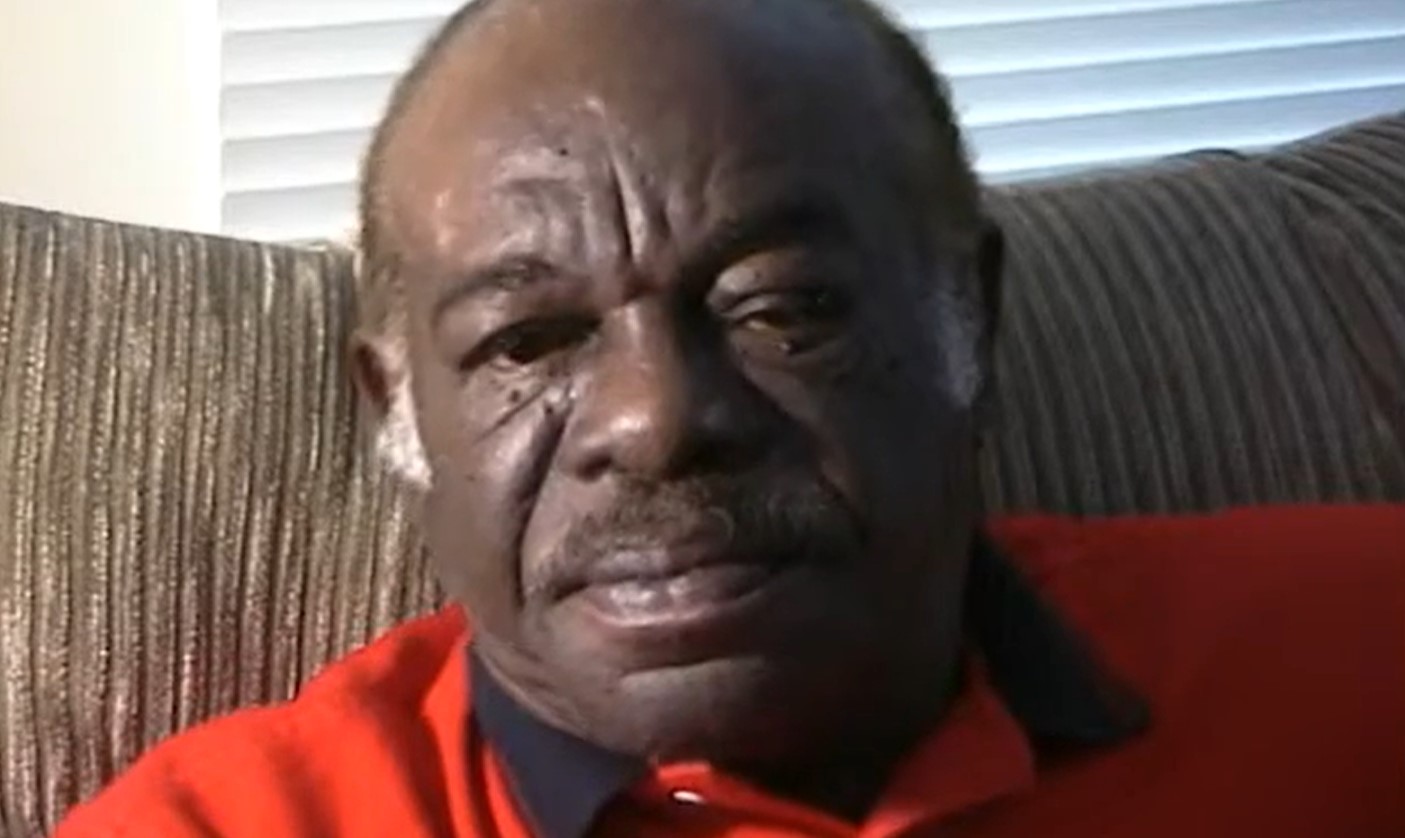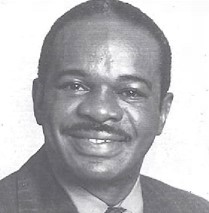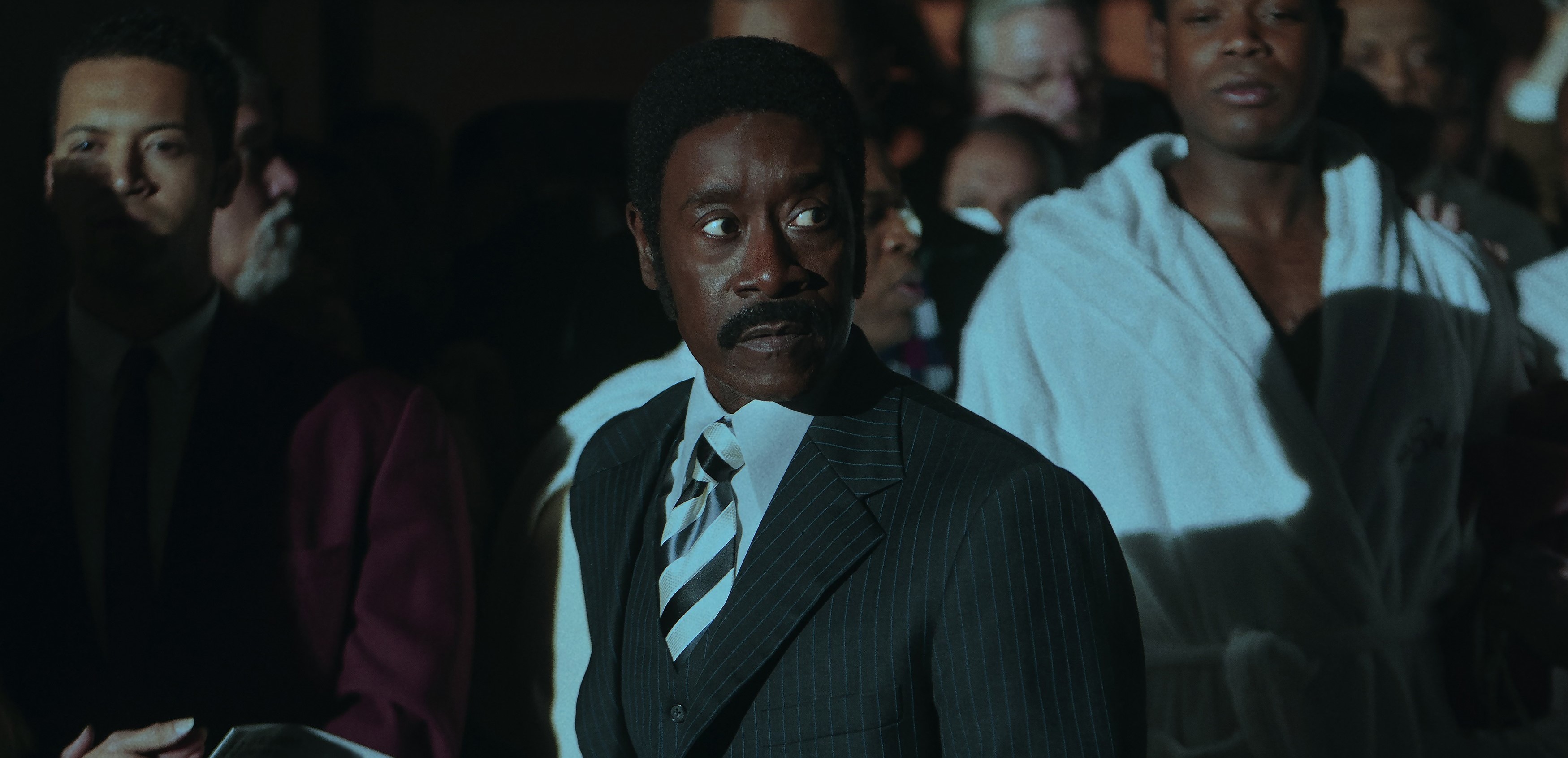Peacock’s crime drama series ‘Fight Night: The Million Dollar Heist’ chronicles an astounding heist that happens on the night of Muhammad Ali’s boxing match against Jerry Quarry and its aftermath. Detective J.D. Hudson leads the investigation into the robbery, racing against time to find the thieves before some of the most powerful Black gangsters do. He sets out to prove his efficiency as a detective by solving the case, only to encounter dead bodies one after the other. Hudson’s real-life counterpart was a towering figure in Atlanta’s law enforcement. Despite the challenges he had to face as an emerging Black cop, he succeeded in leaving a mark on the city’s history!
J.D. Hudson Was Atlanta’s First Black Detective
When Muhammad Ali landed in Atlanta, Georgia, for “The Return of the Champion,” J.D. Hudson was a prominent figure. He was not only one of the African American cops who integrated the city’s police force but also the Atlanta vice squad’s first Black detective lieutenant. The boxer arrived in Hudson’s jurisdiction after rejecting a military call-up during the Vietnam War. The decision polarized the country and exposed him to hate. The detective was responsible for looking after the athlete during his time in the city. The next day, on October 27, 1970, the authorities started investigating the “million-dollar heist” with Hudson again in charge.

It didn’t take long for Hudson to realize that the ones who were robbed, a few of the most notorious Black gangsters of the time, wouldn’t wait for the police to exact revenge. “If there’s any such a thing as the Black Mafia, then the Black Mafia was robbed. Those people don’t accept a thing like this too lightly. They will have men out searching, too. And if they get there first, there won’t be an arrest and trial,” he told the press after taking charge of the case. The police investigation didn’t safeguard the masterminds behind the heist. Dead bodies were discovered not only in Georgia but also in New York.
In 1971, Hudson told the press that the robbed gangsters apparently found the robbers before the police could. He and his partner, Detective Joe Amos, had to close the case without arresting the thieves or recovering the loot. In the same year, he became the administrator/director of Atlanta’s City Prison Farm and Bureau of Corrections, taking a leave of absence from his police work. In 1974, he described himself as a “frustrated social worker” who promised to treat the detainees in the prisons “humanely” with “no incidents of brutality.”
J.D. Hudson Faced Several Allegations During the Later Years of His Career
J.D. Hudson’s term as the director of the Bureau of Corrections and City Prison Farm was filled with controversies of varying kinds. In 1976, one of his high-ranking subordinates resigned, alleging that he had committed “gross intimidation and hounding.” There was also an allegation that the former detective sought sexual favors from a female employee. Irrespective of these accusations, Hudson kept his job without any charges. The controversies didn’t end there. In 1990, financial officials discovered that the Bureau of Corrections diverted the rent of three city-owned houses in the prison farm to the Corrections Officers Benevolent Fund, controlled by Hudson, for five to fourteen years.

After the audit report was published without Hudson’s name, he told the press that neither he nor his employees broke any rules. In April 1990, two months after the audit, he announced his retirement. The former detective stated that he was “tired of working” after committing to public service for around four decades. His wife, Delores, commented on her husband’s decision to retire, stating, “You get tired of getting hassled.” In May 1990, right after his retirement, an internal investigation conducted by the Atlanta Police Department found that Hudson gave “special favors” to a subordinate, including rent-free usage of a city-owned house, “liberal sick leaves and compensatory time, and a Florida trip on city time,” as per The Atlanta Journal-Constitution.
J.D. Hudson and Chicken Man Were Friends During Their Twilight Years
J.D. Hudson spent the initial years of his post-retirement period “living the life of leisure” in a house in Atlanta’s Cascade Glen neighborhood. He frequently went golfing and was in “fine shape.” In July 2002, the former detective met a true-crime enthusiast named Jeff Keating, who wanted to know more about the million-dollar heist and the individuals involved in it. “I’m tired, and I’m retired. I don’t have to talk to you. I don’t have to talk to nobody,” he told the young man, as per Creative Loafing. Still, Hudson shared the details of the case with Keating, who went on to co-create ‘Fight Night,’ the iHeart podcast series that inspired ‘Fight Night: The Million Dollar Heist.’
Hudson led Keating, one of the executive producers of the crime drama, to Gordon “Chicken Man” Williams, the host of the party that the robbers targeted. The former detective and the former drug dealer had become friends by then. The podcaster shot footage of the two companions discussing the case in detail for a documentary that never materialized. Hudson had always taken credit for Chicken Man’s survival, which happened when several of the individuals involved in the robbery, one way or the other, ended up dead. “Because I went on national TV and said he (Chicken Man) didn’t do it. I’m 99.5 percent sure that I saved this man’s life,” the former cop told Creative Loafing.
J.D. Hudson Passed Away Years After a Near-Death Experience
In 2004, J.D. Hudson’s life was turned upside down. On the night of September 23, while he was parking his black Cadillac in his house’s garage in Cascade Glen, Atlanta, he was confronted by two armed men wearing ski masks. They asked the former detective to step out of the car, only for him to face them with a gun of his own. The supposed potential carjackers then fired a pistol several rounds. Hudson was shot multiple times, but despite his wounds, he shot and killed one of the criminals. The other one was hit by the retired cop but managed to flee the scene. The police later arrested the individual.

Even though the bullets hit Hudson’s shoulder, hip, and back, his vital organs were unaffected. After three days in a hospital, he returned home for recovery. Chicken Man was among the people who visited him. “J.D. is like a retired John Shaft — tough as nails. He would take no garbage from anybody. The only thing that is going to kill J.D. is old age,” Steve Holland, one of his neighbors, told The Atlanta Journal-Constitution. Holland’s words turned out to be true. Hudson went on to live around five more years after the incident. However, according to his daughter, Renee Hudson Goodley, the bullets affected his health severely until his death.
Hudson passed away in June 2009. “The gunshots, they didn’t hit any organs, but I believe they pausing them to his system, and I think that was the reason that Daddy died,” Renee told Jeff Keating for the source podcast series. Hudson’s life was nothing short of remarkable. He broke several barriers to become a Black detective when the position seemed out of reach for his community, paving the way for countless African American cops. As a police officer, he witnessed and was involved in a few of the unforgettable happenings that unfolded in Atlanta.
Read More: Frank Moten: What Happened to the Gangster?


You must be logged in to post a comment.